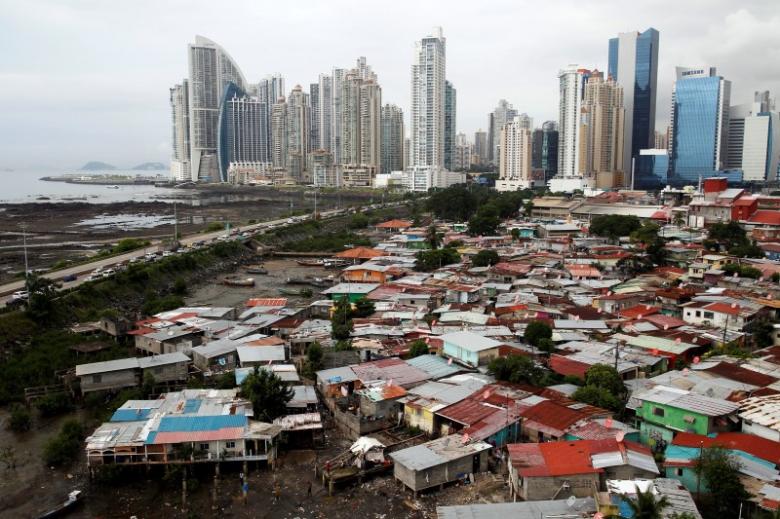|
There is a lot of disagreement over whether inequality is a problem or not.
Economics would tend to frame it as an issue related to total welfare and its relation to growth. If inequality slows down growth, then it is an issue worth adjusting in order to speed up growth and maximize total welfare in the long-run. There is empirical evidence to support the claim that concentrated wealth and inequality does hurt economic growth. So from a purely economic viewpoint, it is an issue worth addressing. The majority of interventions to address this involve progressive taxation and redistribution of some kind. However, total economic welfare is not the sole basis for our decision making. We have a variety of values and the one in most obvious opposition to equality is that of freedom. This is where beliefs matter and what makes (in)equality a particularly thorny issue. I recently wrote about what constitutes progress. In that article, I pointed out that as we overcome more and more obstacles to progress (slavery, colonialism, discrimination), the next frontiers (poverty and inequality) cannot be addressed with the same tools as the past. The former obstacles are ones that can be fixed by securing rights, poverty and inequality fundamentally need one person to give up something (money) and give it to another. This involves doing something (giving money) as opposed to not doing something (enslaving, colonizing, discriminating). Ultimately, this means finding a motive for the doing. Unless we are motivated to give and redistribute, we cannot “fix” poverty and inequality. The desire to change comes before the action and solution. This desire comes from our beliefs about the world and how we do or do not see ourselves as humans. It gets directly at the heart of how we see human nature. Most essentially, we need to discuss what people deserve and why. If I ask you to give up your money and you believe that you deserve to keep it because you have worked hard for it, then we are at a loss for a solution unless we are willing to resort to violence (state backed force). So we must examine this most common defense of inequality, that people deserve to keep their money or wealth because of some variety of meritocracy. The most typical varieties of merit I come across are ones of intelligence, talent, and hard work. “I deserve to keep my wealth because I worked hard, am intelligent, and applied my talents to issues of value.” Intelligence and talent are often easy to deal with as forms of merit entitling someone to the rewards of income and wealth. A person does not choose their intelligence and talent levels in any given endeavor and so without personal choice or control in the matter, it is difficult to argue in favor of a “just deserts” mindset for things you did not in fact work for. You’re born into fortunate circumstances, so anything that comes your way has little to do with you and is just a fortunate happenstance. The third merit used as justification for inequality is typically hard work. This is centered at the heart of the debate over free will and its existence. Why do you choose to work hard? You are motivated. Why are you motivated? Personality, emotions, feelings, drives, social circumstances, parents, etc. None of the items one can point to in order to explain motivation for hard work are actually in one’s control either. You no more choose to work hard than you chose your intelligence or talents and if that is the case you don’t deserve to keep your income and wealth any more than a kid who inherits a million dollars from a parent. Now we can address the topic of inequality a little more clearly. Do you deserve your wealth and income? No. You are fortunate to have it for any of a huge variety of reasons: your parents, place of birth, intelligence, talent, hard work, personality, social relationships. Not a single reason is of your own doing because you did not choose or control these things. However, the act of being born is not asked for by anyone. No one is alive today because they consulted with their parents and decided it was in their best interest to come into existence. If parents are able to make this choice to have children through their own unilateral decisions, then it is fair to say that the parents do in fact owe the children as happy an existence as possible. To birth a child into suffering and not do everything possible to provide it with well-being is to commit one of the most awful atrocities thinkable. Seeing this perspective, it becomes very important to provide the means necessary to achieve well-being once alive. This involves clean air, water, food, clothing, shelter, healthcare, education, and the freedom to pursue happiness. This cannot be done in poverty and absolute poverty should be seen as one of the most serious moral failings of our time on the account that we have the choice to rid our planet of it and we have not done so. Do we deserve to be wealthy? No. Do we deserve happiness and well-being? Yes. At the most fundamental level, these answers reflect our beliefs in free will, entitlements, and suffering. When our beliefs change, inequality will change automatically. Until then, inequality will persist indefinitely regardless of the economic interventions initiated.
0 Comments
Leave a Reply. |
Archives
November 2017
|

 RSS Feed
RSS Feed